CHARLEVOIX — A Tibetan yak is not something one commonly encounters in rural Northern Michigan, nor would one expect to find an entire farm, one of the largest in the state, teeming with the shaggy beasts.
Despite their South Asian origins, however, that is exactly where visitors can find these yak if they visit Kiwidinok Farm, located on the outskirts of Boyne City on the road to East Jordan.
Dozens of the gigantic horned creatures, resembling a mix between a plains bison, a Star Wars bantha and Mr. Snufffleupagus, greet guests to the farm by simply going about their leisurely business, impressing onlookers with their unexpectedly peaceful nature and enviably long eyelashes.
Moving from New Zealand in 1974, Jim Dixon and his wife Dawn started the farm in 2013 after retiring from the corporate world.
Along with yaks, they have Katahdin sheep, alpacas, mini goats, rabbits, peacocks, miniature ponies, baby donkeys and turkeys. They offer guided tours with the animals and other family events throughout the year.
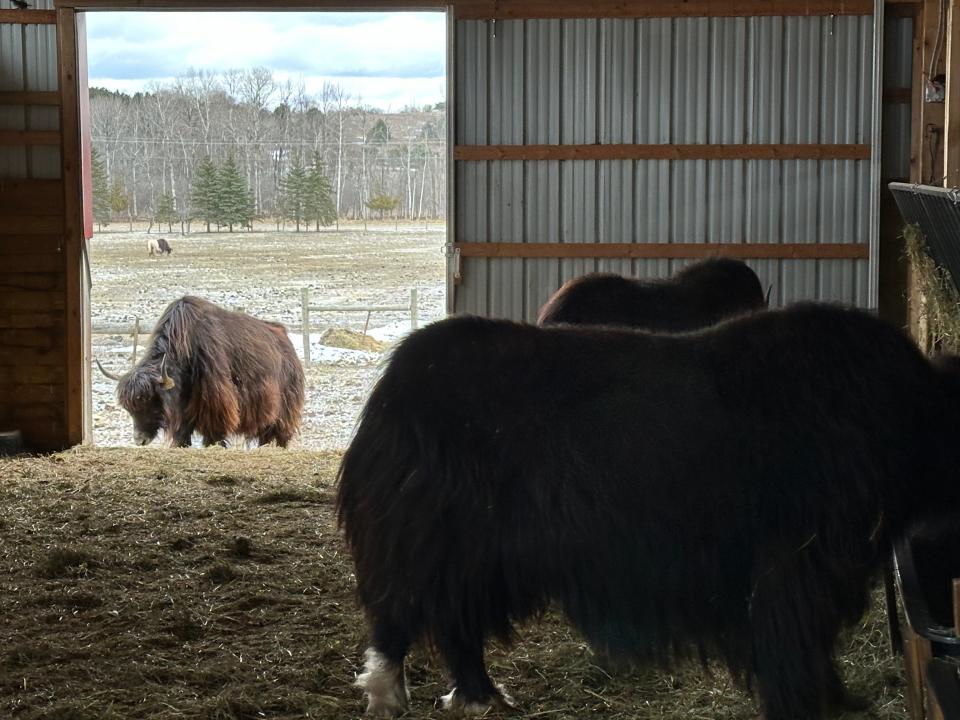
“We’ve got about 64 four-legged and another 40 two-legged (fowl),” said Dixon, adding “we go through about a hundred thousand pounds of hay each year.”
A walk through the farm’s barn with Jim cannot help but make visitors feel as if they have stepped into the fictional worlds depicted in “Charlotte’s Web” or “Babe,” where all the animals can talk to one another.
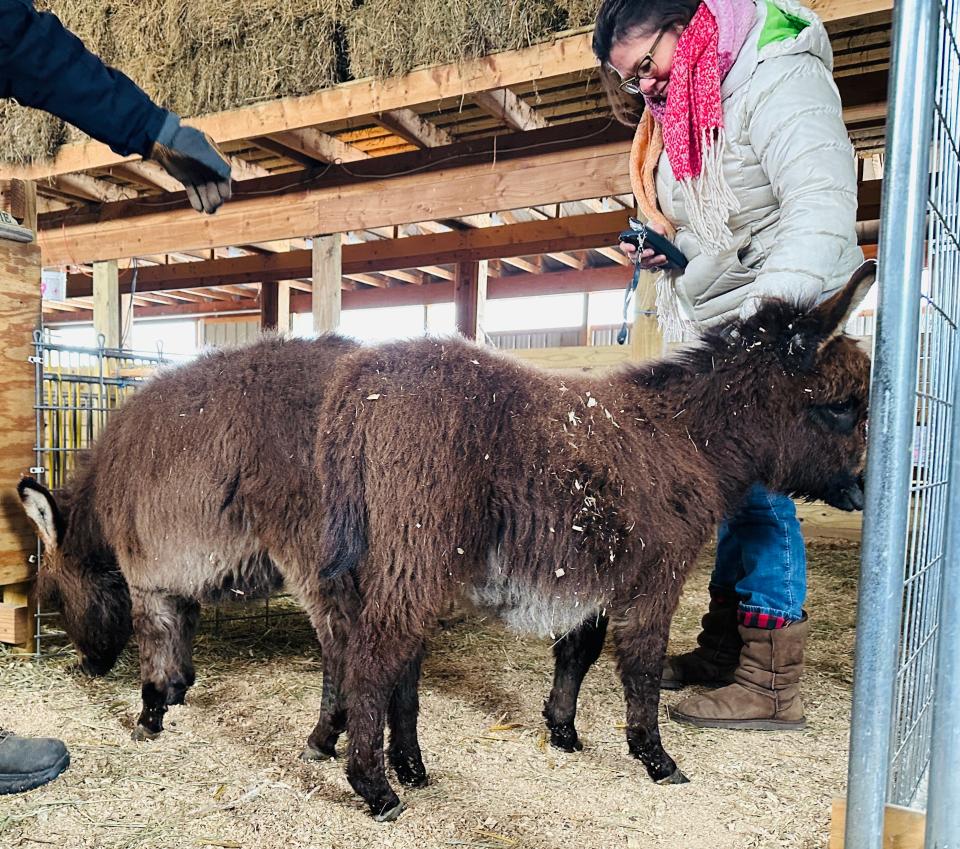
Subscribe: Check out our offers and read the local news that matters to you
Jim greets each animal by name along with descriptions and anecdotes of their unique personality traits.
Snickers the one-eyed calico barn cat sat on a beam, watching protectively over the group of expectant mother sheep. Billie Bob the Kentucky Bourbon turkey served as the unofficial tour guide. Walking a few feet ahead with his plumage puffed, he stopped every once in a while to look back and allow an occasional head pat.
“He thinks he’s in charge of the barn,” said Jim.
“Did you know that a turkey’s head would feel like that?” he asked, referring to the soft velvety feeling.
Jim lifted a bit of Billie Bob’s excess skin around his face to reveal a tiny bird beak underneath.
“He gets a bit shyer this time of year because his feathers are molting, and he doesn’t feel as handsome as usual,” said Jim.
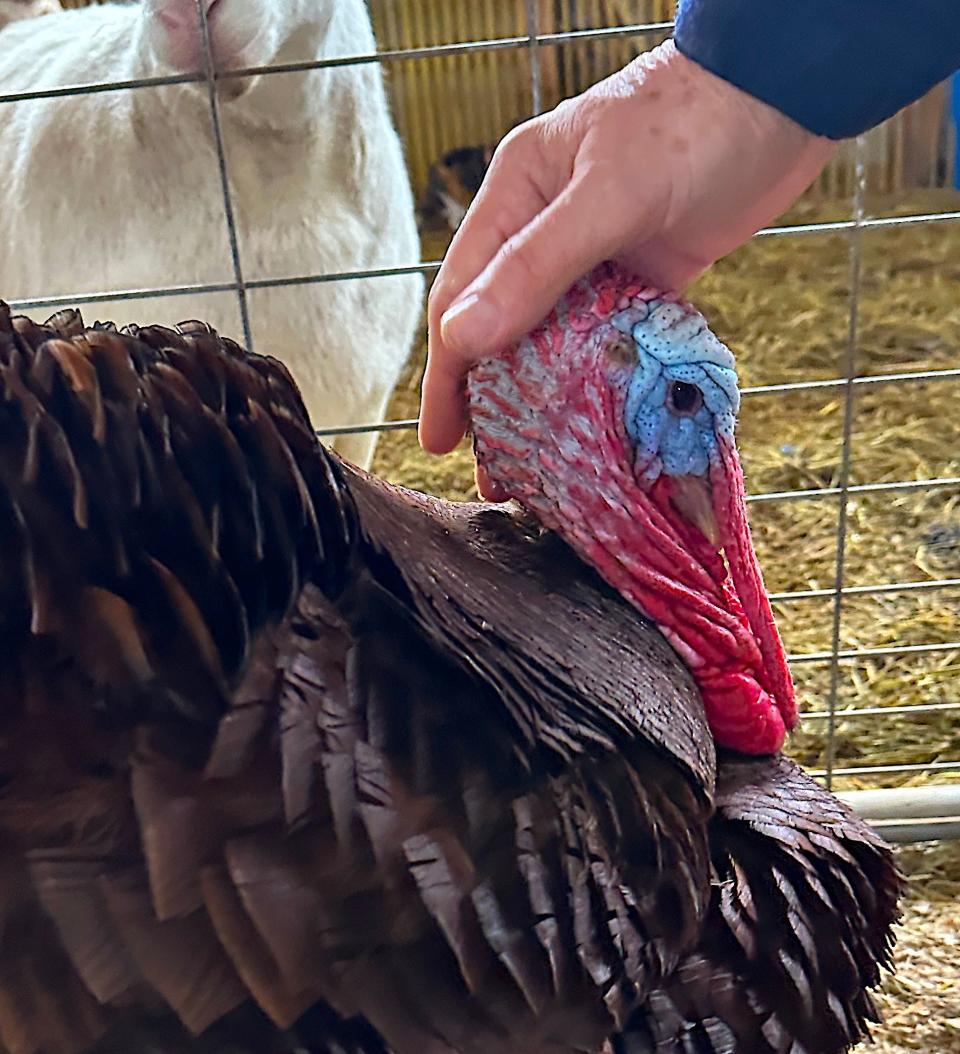
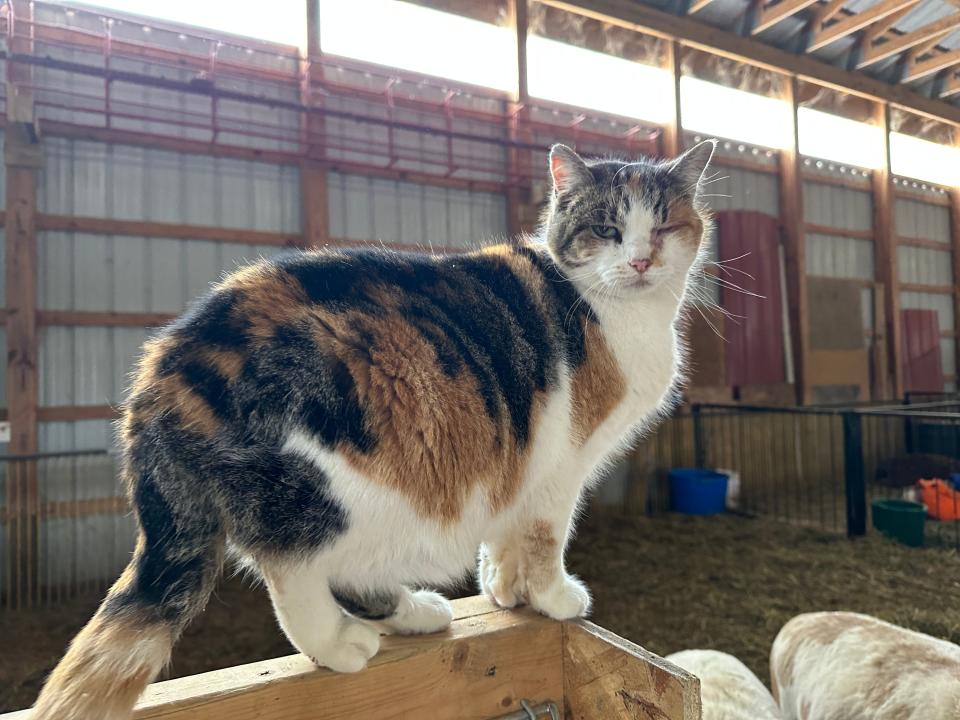
A large black yak ran into the barn at the sound of Jim’s voice.
“Frankie!” said Jim, giving the large beast scratches behind his ears.
Jim said he spent his professional life as an engineer and retiring has allowed him to “get his soul back.” He and Dawn said they absolutely love running the farm.
“This is our vacation. This is our life. There is nothing more fun than to watch little kids giggle and get in touch with these animals,” Jim said. “We get a lot of gratification out of watching visiting families just bonding and enjoying the hour or two that they are here. It is special for us, very special.”
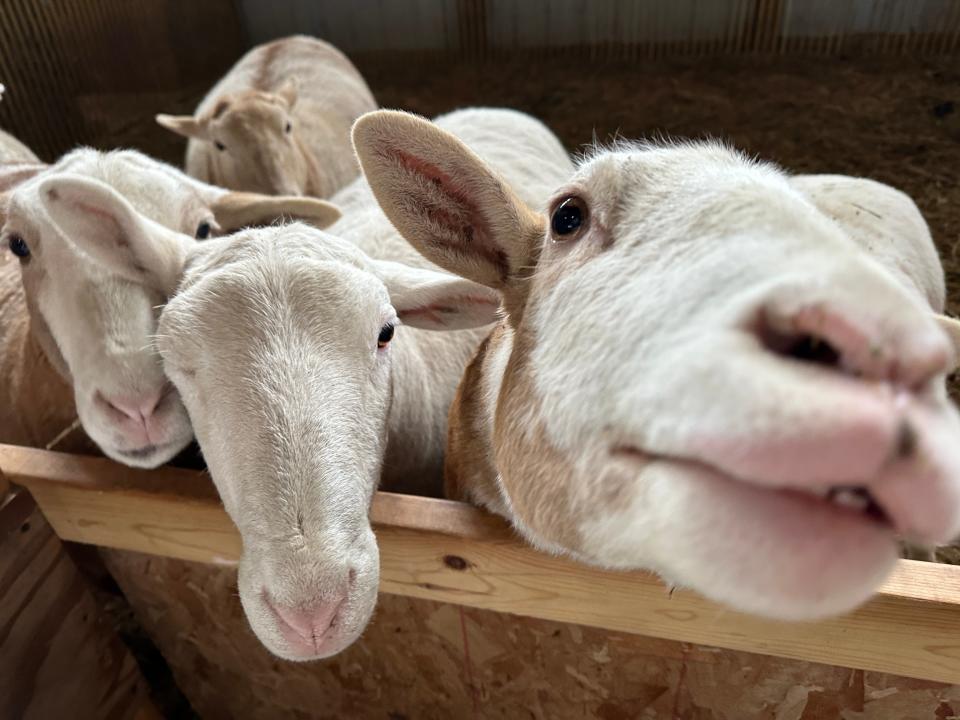
Jim mourned the disconnect he sees between modern children and the outdoors, noting how much time they spend looking at screens.
“They really don’t understand,” he said. “They are losing the smell and the touch and the solace and the dimensional peace.”
The circle of life is evident on the farm. Jim purposely breeds the animals throughout the year, allowing visitors to see babies and learn about the expectant animal mothers.
“The sheep in the barn are due in another 3-5 weeks” he said. “Thirteen baby yaks are due around June or July.”
For more information or to meet the animals who live at the farm, visit Kiwidinok.com.
— Contact reporter Annie Doyle at (231) 675-0099 or adoyle@charlevoix
This article originally appeared on The Petoskey News-Review: Boyne City yak farm among Michigan’s largest
Signup bonus from





